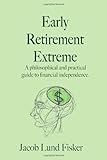On the long list of things that you can do while saving money, one thing that invariably makes it’s way to the top 10 is to brown bag lunches and to cook at home. If you’ve ever sat down and figured out how much you spend eating out each month (we have, it’s in the budget), you know that food, and dining out in particular, can be a real drain on the budget.
One thing that really holds many people back from cooking at home and even from taking bag lunches to work is that they never really learned how to cook. Either their parents never brought them into the kitchen to help, or their parents just never cooked at home either. Either way, many of the simple skills that those who do cook take for granted are a complete mystery to others. Some of those skills are being replaced with machines and such that can do the task, but those are usually expensive and if you’re trying to save money, aren’t really an option.
 But, it’s not an excuse! You can learn those skills rather easily. Need to know how to boil an egg? Search for “boil an egg” on the internet. Anyone who can read, can make their own food. With the internet at our fingers, you can easily search for recipes. Stuffing? How about Pineapple Stuffing. Chicken? Here’s a whole list of chicken breast recipes! Here’s instructions on how to make beef jerky! Most have pretty detailed instructions. And, besides, what’s the worst that could happen? You ruin some food? I’d bet you could try at least once or twice more and still not equal what the same meal would cost at a restaurant!
But, it’s not an excuse! You can learn those skills rather easily. Need to know how to boil an egg? Search for “boil an egg” on the internet. Anyone who can read, can make their own food. With the internet at our fingers, you can easily search for recipes. Stuffing? How about Pineapple Stuffing. Chicken? Here’s a whole list of chicken breast recipes! Here’s instructions on how to make beef jerky! Most have pretty detailed instructions. And, besides, what’s the worst that could happen? You ruin some food? I’d bet you could try at least once or twice more and still not equal what the same meal would cost at a restaurant!
The bottom line is this. Not knowing something isn’t an excuse. Some things will take time to learn, but you can learn many of these basic skills, with repeated practice, in less than a month. Challenge yourself! Take a month off of eating out. Only eat in for those 30 days. And, no, I don’t mean delivery. Or Digiornos. Start with raw ingredients and go from there, using a recipe. After a while, you get to know how certain things taste and how they go together and you can even forget the recipe.
Photo Credit: thatedeguy, on Flickr

I started this blog to share what I know and what I was learning about personal finance. Along the way I’ve met and found many blogging friends. Please feel free to connect with me on the Beating Broke accounts: Twitter and Facebook.
You can also connect with me personally at Novelnaut, Thatedeguy, Shane Ede, and my personal Twitter.


